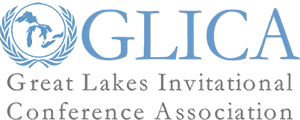WilliamstonDelegates 11/25/2021 23:47:58 64.53.220.87
Topic:
Country: Japan
Delegate Name: Cassidy Convey
Access to water and sanitation has been a pressing issue for years. As a part of the Sustainable development goals, the UN is trying to complete by 2030 this is number six. 2 billion people lacked access to safe drinking water and 3.6 billion people lacked safely managed sanitation in 2020. This has become even more of a problem due to the worldwide pandemic and the spread of COVID-19. Not only covid but other diseases such as cholera, dysentery, hepatitis A, typhoid, and polio. Low-income countries are struggling even more now to provide safe sanitation and water. This will not only continue to affect low-income countries struggling with this but also countries that are dependent on those countries.
Japan has a great interest in the matter, Japan already has provided 40 million people with clean water and accessible sanitation and many more to countries that cannot afford it. Japan has many plans in place to pace with the Sustainable development goals. They have 90% of their country accessible to clean drinking water. In addition to this Japan has recently started helping out other countries who are struggling to keep pace. Japan has partnered with the United States to provide clean water with the launch of the “Clean Water for People” initiative, a partnership to improve the sustainable management of freshwater resources and accelerate and expand international efforts to achieve the UN Millennium Development Goal of cutting in half by 2015 the proportion of people who are unable to reach or to afford safe drinking water, and similar effort on sanitation.
Japan would like to see help offered to other countries to help them provide clean water and sanitation to lower-class countries. Japan will also continue the pace it is on and continue to provide safe drinking water to not only its own people but to other counties if wanted. Japan would not wish to interfere with the sovereignty of any nation and would be opposed to any plan which deprives any country of its rights to its lands.


